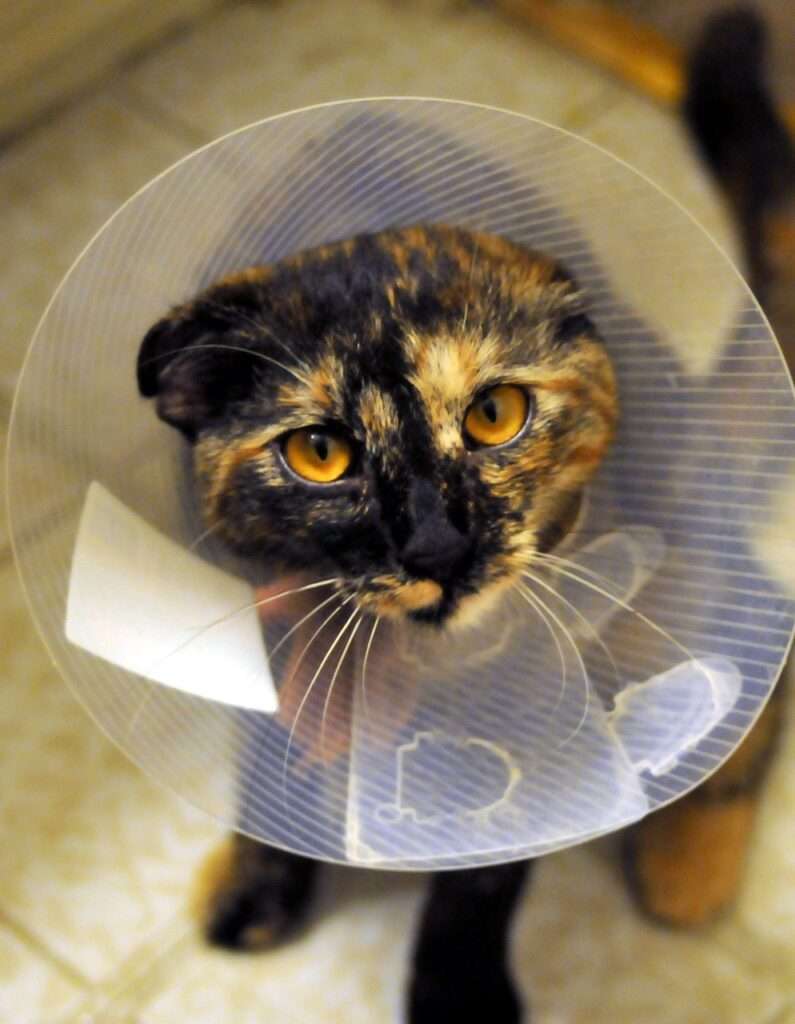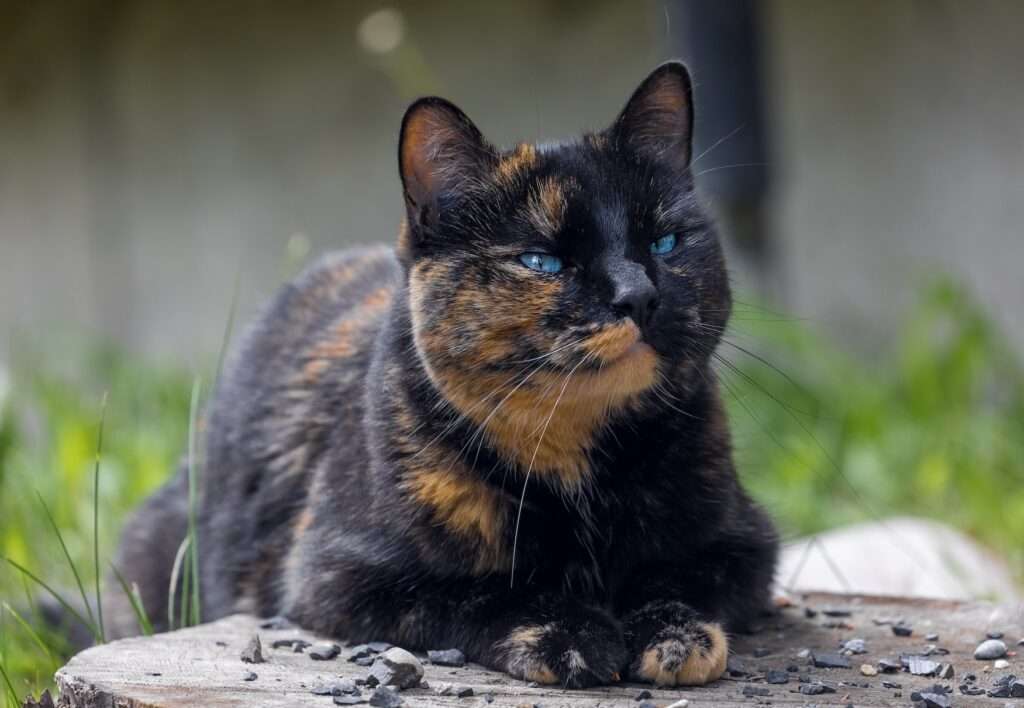Top 8 Tortoiseshell Cat Health Problems Revealed: What Owners Should Watch Out For
As devoted pet parents, we understand the significance of providing the best possible care for our furry companions. When it comes to tortoiseshell cats, it is crucial to familiarize ourselves with the specific health concerns they may face. By gaining insight into these issues, we can proactively safeguard the well-being of our beloved tortoiseshell feline friends.
In this comprehensive guide, we delve into the realm of tortoiseshell cat health problems, covering everything from their distinct characteristics to common health conditions. With this knowledge in hand, you’ll be equipped to navigate your cat’s health journey with confidence and ensure they live their best lives.
Understanding Tortoiseshell Cats
Tortoiseshell cats, known for their striking and unique coat patterns, captivate our hearts with their beauty and charm. Understanding the distinctive nature of these feline companions is essential in providing them with the care they deserve.
Tortoiseshell cats, often referred to as “torties,” exhibit a captivating combination of colors, with patches of black, orange, and sometimes white, intricately interwoven throughout their fur. The distribution of these colors is as unique as their individual personalities, making each tortoiseshell cat truly one-of-a-kind.
From a genetic standpoint, the coat pattern of a tortoiseshell cat is linked to the X chromosome, making them predominantly female. Though rare, male tortoiseshell cats do exist, typically resulting from genetic anomalies. This gender specificity adds to the allure and mystery surrounding these enchanting felines.
Beyond their physical appearance, tortoiseshell cats are known for their spirited personalities. They often exhibit a combination of independence and affection, making them a delightful addition to any household. These feline divas have a reputation for being sassy, spirited, and full of life.
While tortoiseshell cats can be found in various breeds, some breeds are more commonly associated with this stunning coat pattern. Popular tortoiseshell breeds include the American Shorthair, British Shorthair, and Maine Coon. Each breed brings its own unique traits and characteristics, further enhancing the allure of these captivating cats.
General Health Considerations for Tortoiseshell Cats
Ensuring the overall well-being of your tortoiseshell cat requires attention to several essential aspects of their health. By prioritizing routine veterinary care, maintaining a balanced diet, promoting hydration, and keeping their coat in top condition, you can help your feline friend thrive.
- Regular veterinary check-ups are vital for monitoring your tortoiseshell cat’s health and catching any potential issues early on. Your veterinarian will perform thorough examinations, administer necessary vaccinations, and offer guidance on preventive care measures specific to your cat’s needs.
- Providing a balanced and nutritious diet is key to your tortoiseshell cat’s optimal health. Consult with your veterinarian to determine the appropriate type and amount of food for your cat’s age, activity level, and any specific dietary requirements. High-quality cat food that includes essential nutrients will support their overall well-being and help prevent common health problems.
- Hydration is equally important for your tortoiseshell cat’s health. Ensure your cat has access to fresh, clean water at all times. Some cats prefer running water, so consider using a cat water fountain to encourage regular drinking. Adequate hydration helps maintain proper organ function, aids digestion, and promotes healthy skin and coat.
- Regular grooming sessions not only keep your tortoiseshell cat looking their best but also contribute to their overall health. Brushing their coat helps remove loose fur, prevents matting, and reduces the risk of hairballs. Additionally, grooming allows you to check for any skin abnormalities, such as rashes or irritations, which may require veterinary attention.
Common Health Problems in Tortoiseshell Cats

Despite our best efforts, tortoiseshell cats can still experience certain health problems. By being aware of these potential issues, you can take proactive steps to prevent or manage them effectively.
- Urinary tract issues, such as urinary tract infections and bladder stones, are common in cats. Causes may include diet, urinary tract abnormalities, or bacterial infections. Look out for symptoms like frequent urination, blood in the urine, or urinating outside the litter box. Providing a balanced diet, ensuring regular hydration, and maintaining a clean litter box can help reduce the risk of these problems.
- Skin and coat conditions, including allergies, dermatitis, and matting, can affect tortoiseshell cats. Allergies can be triggered by various factors like food, environmental allergens, or parasites. Dermatitis and hot spots may result from allergies, infections, or external irritants. Regular grooming and a healthy diet can help minimize these issues. Additionally, consult your veterinarian for suitable treatments if your cat experiences persistent skin problems.
- Eye and ear problems, such as conjunctivitis, infections, or mites, can be distressing for your tortoiseshell cat. Monitor their eyes for redness, discharge, or excessive tearing, and check their ears for signs of infection like odor or discharge. Regular cleaning and preventive measures can help keep their eyes and ears in good health.
- Dental health concerns are prevalent among cats, including periodontal disease and tooth decay. Regular brushing, dental treats, and professional cleanings can help maintain your tortoiseshell cat’s oral hygiene. Introduce dental care gradually and consult your veterinarian for guidance on specific dental care products.
- Obesity poses significant health risks for tortoiseshell cats. Overweight cats are prone to diabetes, joint problems, and heart disease. Establish a balanced diet, provide regular exercise opportunities, and monitor their weight to prevent obesity-related complications.
- Some tortoiseshell cats may inherit genetic disorders like polycystic kidney disease (PKD) or hypertrophic cardiomyopathy (HCM). Genetic testing and responsible breeding practices can help reduce the incidence of these conditions. If you plan to adopt a tortoiseshell cat, consider asking the breeder or rescue organization about any known genetic issues.
- As tortoiseshell cats age, they may face age-related health concerns like arthritis, cognitive decline, or dementia. Provide them with a comfortable environment, monitor their mobility, and consult your veterinarian for appropriate senior cat care strategies.
- Additionally, Klinefelter Syndrome, a genetic disorder characterized by an extra X chromosome in male cats (XXY), can also occur in tortoiseshell cats. While not exclusive to tortoiseshell cats, it’s important to be aware of this genetic disorder and its potential implications. Cats with Klinefelter Syndrome may experience fertility issues, behavioral changes, and possible health concerns.
Preventive Measures for Tortoiseshell Cat Health
Taking proactive measures to prevent health problems is crucial for maintaining the well-being of your tortoiseshell cat. By implementing preventive measures such as vaccinations, parasite prevention, making informed decisions about indoor vs. outdoor environments, and creating a safe and stimulating space, you can ensure your cat leads a healthy and fulfilling life.
- Vaccinations play a vital role in safeguarding your tortoiseshell cat against contagious diseases. Consult with your veterinarian to establish a vaccination schedule tailored to your cat’s needs. Core vaccines, such as those for rabies and feline distemper, are typically recommended for all cats. Non-core vaccines may be suggested based on factors such as lifestyle, location, and potential exposure risks.
- Parasite prevention is essential for protecting your tortoiseshell cat from external and internal parasites. Regularly administer flea and tick prevention treatments to safeguard against infestations and the diseases they may carry. Additionally, ensure your cat receives regular deworming treatments to combat intestinal parasites. Your veterinarian can provide guidance on suitable prevention products and schedules.
- Deciding whether to keep your tortoiseshell cat indoors or allow outdoor access requires careful consideration. Outdoor cats face risks such as traffic accidents, encounters with wildlife, exposure to infectious diseases, and potential harm from other animals. Keeping your cat indoors provides a safer environment, reducing these risks significantly. If you choose to allow outdoor access, consider implementing safeguards like secure enclosures or supervised outdoor time.
- Creating a safe and stimulating environment is crucial for your tortoiseshell cat’s well-being. Provide them with a designated space that includes scratching posts, comfortable resting areas, interactive toys, and vertical spaces for climbing and perching. Enrichment activities, such as puzzle feeders or interactive play sessions, help keep your cat mentally and physically engaged, preventing boredom and behavioral problems.
Recognizing Signs of Illness in Tortoiseshell Cats

As a responsible tortoiseshell cat owner, being attentive to your cat’s well-being includes recognizing signs of illness. Understanding their body language and monitoring behavior changes can help you identify potential health issues early on.
Cat body language can provide valuable cues about their health and emotional state. Pay attention to changes in posture, tail position, ear position, and vocalizations. Unusual behaviors like excessive hiding, aggression, or excessive grooming may indicate underlying health problems or stress.
Common signs of illness in tortoiseshell cats include loss of appetite, sudden weight loss or gain, lethargy, changes in grooming habits, and changes in litter box habits. Any significant change in these areas may warrant veterinary attention. Keep an eye out for abnormalities in urine or feces, vomiting, coughing, sneezing, excessive thirst, or difficulty breathing.
Trust your instincts as a pet parent. If you notice concerning signs or feel that something is not quite right with your tortoiseshell cat, it’s important to seek veterinary attention promptly. Early intervention can make a significant difference in their prognosis and overall health.
Providing Emotional and Mental Well-being for Tortoiseshell Cats
Ensuring the emotional and mental well-being of your tortoiseshell cat is just as important as their physical health. By providing environmental enrichment, engaging in playtime with interactive toys, and fostering a strong bond through bonding and socialization, you can support their overall happiness and contentment.
- Environmental enrichment is essential for keeping your tortoiseshell cat mentally stimulated and engaged. Create a cat-friendly environment by offering a variety of toys, scratching posts, and climbing structures. Consider providing puzzle feeders or treat-dispensing toys to encourage natural foraging behaviors and mental challenges. Rotating toys and regularly introducing new stimuli can prevent boredom and enrich their daily lives.
- Playtime is a vital component of your tortoiseshell cat’s well-being. Engage in interactive play sessions using toys that mimic prey-like movements, such as wand toys or laser pointers. This not only provides physical exercise but also fulfills their natural hunting instincts. Make playtime a regular part of your daily routine to keep your tortoiseshell cat physically active and mentally stimulated.
- Building a strong bond with your tortoiseshell cat is crucial for their emotional well-being. Spend quality time with them, providing affection, gentle petting, and positive reinforcement. Engage in activities that they enjoy, such as interactive play or grooming sessions. Respect their boundaries and provide a safe and secure space where they can retreat when they need alone time.
- Socialization is essential for tortoiseshell cats to thrive emotionally. Gradually introduce them to new experiences, people, and other animals in a controlled and positive manner. This helps prevent fear or anxiety-related behaviors and allows them to develop confidence and adaptability. Early socialization is particularly important during kittenhood, but adult cats can also benefit from gradual exposure to new stimuli.
Emergency Preparedness for Tortoiseshell Cats
Being prepared for emergencies is essential to protect the health and well-being of your tortoiseshell cat. By creating an emergency kit, familiarizing yourself with common emergencies and basic first aid tips, and having emergency vet contacts and resources readily available, you can ensure prompt and appropriate care during unexpected situations.
- Start by assembling an emergency kit specifically tailored for your tortoiseshell cat. Include essentials such as a pet first aid manual, gauze, adhesive tape, hydrogen peroxide for wound cleaning, a digital thermometer, and any necessary medications. Keep the kit easily accessible in case of emergencies.
- Educate yourself on common emergencies that tortoiseshell cats may face, such as injuries, ingestion of toxic substances, or choking. Familiarize yourself with basic first aid techniques, such as how to perform CPR or address minor wounds. However, it’s important to remember that first aid should always be followed by immediate veterinary care.
- Maintain a list of emergency vet contacts, including the phone number and address of the nearest 24-hour veterinary hospital. Research nearby emergency clinics and keep the information in an easily accessible place. Additionally, familiarize yourself with pet insurance information, if applicable, to ensure smooth and timely access to veterinary care during emergencies.
It’s always better to be prepared than caught off guard during an emergency situation. Taking the time to gather essential supplies, educate yourself on emergency procedures, and have necessary contacts readily available can make a significant difference in your tortoiseshell cat’s well-being during critical moments.
Conclusion
In this comprehensive guide, we’ve explored the various aspects of tortoiseshell cat health problems, equipping you with valuable knowledge to ensure your feline companion’s well-being. From understanding their unique characteristics to addressing common health issues, we’ve emphasized the importance of proactive care.
By familiarizing ourselves with general health considerations, including veterinary care, nutrition, hydration, and grooming, we establish a foundation for their overall health. We’ve delved into specific health problems such as urinary tract issues, skin conditions, eye and ear problems, dental concerns, obesity, genetic disorders, and age-related issues. Understanding the causes, symptoms, prevention, and treatment options empowers us to take proactive measures and seek veterinary assistance when needed.
Prevention is key, and we’ve highlighted the significance of vaccinations, parasite prevention, indoor vs. outdoor considerations, and creating a safe and stimulating environment. By recognizing early signs of illness and promptly seeking veterinary attention, we can ensure the best care for our furry friends.
We’ve also stressed the importance of emotional and mental well-being through environmental enrichment, interactive play, bonding, and socialization. And lastly, we’ve emphasized the need for emergency preparedness, including creating an emergency kit and having emergency vet contacts readily available.
In conclusion, by implementing the guidelines and recommendations from this guide, you demonstrate your commitment to providing the best care for your tortoiseshell cat. Remember, proactive care and early intervention are crucial for their health and happiness. Enjoy the journey with your beloved feline companion, creating lasting memories filled with joy, laughter, and unconditional love.
Frequently Asked Questions
Q: Are tortoiseshell cats more prone to certain health issues compared to other cat breeds?
A: While there are no specific health issues exclusive to tortoiseshell cats, they may be prone to some genetic disorders such as polycystic kidney disease (PKD) and hypertrophic cardiomyopathy (HCM). Regular veterinary check-ups and genetic testing, if applicable, can help identify and manage any potential health concerns.
Q: How can I ensure my tortoiseshell cat maintains a healthy weight?
A: Weight management is crucial for tortoiseshell cats to prevent obesity-related health problems. Consult your veterinarian to determine the appropriate portion sizes and feeding schedule for your cat. Engage in regular play sessions to encourage physical activity, and provide a balanced diet with proper nutrition to maintain their ideal weight.
Q: How can I tell if my tortoiseshell cat is in pain or unwell?
A: Cats are known for hiding signs of illness or pain. Look for subtle changes in behavior, such as decreased appetite, lethargy, hiding, or vocalization. Any significant change in their normal routines or noticeable discomfort should prompt you to seek veterinary attention promptly.
Q: Is it necessary to keep my tortoiseshell cat indoors?
A: While the decision to keep your cat indoors or allow outdoor access depends on various factors, including your cat’s safety and the local environment, keeping them indoors significantly reduces their exposure to risks such as traffic accidents, fights with other animals, and infectious diseases. If you choose to allow outdoor access, consider implementing safeguards like secure enclosures or supervised outdoor time.
Q: How can I help my tortoiseshell cat cope with aging-related health concerns?
A: Aging can bring about specific health issues in tortoiseshell cats, such as arthritis or cognitive decline. Providing a comfortable and supportive environment, including soft bedding and easy access to litter boxes, can help with mobility issues. Regular veterinary check-ups and appropriate senior cat care strategies, such as dietary adjustments and mental stimulation, can contribute to their overall well-being.
Remember, if you have specific concerns about your tortoiseshell cat’s health, it’s always best to consult with a veterinarian who can provide personalized guidance based on your cat’s individual needs.





